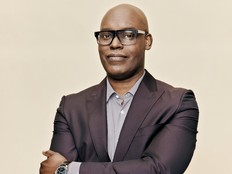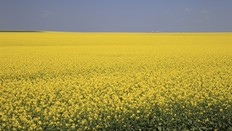What Canada’s election results mean for Canadians, Trump and U.S. tariffs

Article content
Canada’s Liberal Party, led by Mark Carney, is projected to win a federal election that played out against a tumultuous backdrop of President Donald Trump’s trade war and annexation threats.
It was not immediately clear whether the Liberals would lead a minority or majority government as votes continued to be counted early Tuesday. Either way, Carney will now have to figure out how to deal with Trump’s 25 percent tariffs on many Canadian goods – and his persistent talk of turning the country into a “51st state.”
Here are the key takeaways from Canada’s election results.
1. Voters elected Carney amid Trump’s threats
The election became in large part a referendum on who Canadians felt would do a better job of protecting their country from Trump’s economic and geopolitical salvos.
Trump has announced tariffs on some of Canada’s largest exports to the United States, including auto parts, prompting retaliatory levies from Canada and a “Buy Canadian” movement encouraging consumers to boycott American brands.
Trump’s repeated threats of annexation also rankled Canadians. Former prime minister Justin Trudeau told business leaders in February that he believed Trump’s talk was serious and that the president coveted Canada’s critical minerals. Carney – who took over the Liberal Party leadership from Trudeau in March – also tapped into voter concerns over Trump, saying during a victory event early Tuesday: “President Trump is trying to break us so America can own us.”
Meanwhile, Pierre Poilievre – a career politician and right-wing populist who once declared war on “wokeism” – found his Trump-like qualities now counted against him. He faced a sudden reversal in polls that had favored his Conservative Party to win only a few months ago; on Tuesday morning, he was projected to lose his seat, according to the Canadian Broadcasting Corp. The party was polling with a more than 20-point lead over the Liberals in January.
2. Carney pledges discussions with the U.S. – but says Canada has ‘other options’
Carney, a 60-year-old former central banker in Canada and Britain, pitched himself as a crisis manager who could navigate Trump’s economic chaos. Carney said during the campaign that Canada’s “old relationship with the United States, based on deepening integration of our economies and tight security and military cooperation, is over.”
Carney has said there are sectors of the economy that will remain deeply integrated with the U.S. and that he will seek to negotiate a new security and trade relationship with Trump. But he has also talked up the prospects of broadening ties with other “like-minded” partners globally.
In his victory speech, he said he would meet with the U.S. president to discuss “the future economic and security relationship between two sovereign nations.” He said the discussion would be undertaken with the “full knowledge that we have many, many other options than the United States,” promising to strengthen relations with “reliable partners” in Europe, Asia and elsewhere.
Canadian Foreign Minister Mélanie Joly has said that Canada wants to deepen ties with Europe. She told a gathering of Group of Seven foreign ministers in March: “If the U.S. can do this to us, their closest friend, then nobody is safe.” Her warning came ahead of Trump’s far-reaching tariff announcement in April and prompted pledges of solidarity from European Union officials.
3. World reactions focused on closer ties with Canada
As world leaders congratulated Carney on Tuesday, many focused on the importance of a strong relationship with Canada amid global political and economic turmoil. “You embody a strong Canada in the face of today’s challenges,” French President Emmanuel Macron wrote in a message to Carney, while Australian Prime Minister Anthony Albanese said: “In a time of global uncertainty, I look forward to continuing to work with you to build on the enduring friendship between our nations.”
Ukrainian President Volodymyr Zelensky – who has been working to head off a U.S. proposal to end Russia’s war with Ukraine on terms favorable to Moscow – praised “Canada’s principled leadership in supporting Ukraine – from military, financial, and humanitarian assistance to imposing sanctions against Russia.”
Messages from China and India, whose relationships with Canada have strained in recent years, also stressed willingness to strengthen ties. Chinese Foreign Ministry spokesman Guo Jiakun said Beijing is “willing to develop Chinese-Canadian relations on the basis of mutual respect, equality and benefit.” The countries’ relationship plummeted in 2018 when Canada detained a top Chinese tech executive and Beijing jailed two Canadians, which Western officials said was an example of “hostage diplomacy.” All three were extradited to their homes countries in 2021.
India’s relationship with Canada deteriorated drastically after Trudeau spoke in 2023 of “credible allegations” that Indian government agents were linked to the assassination of a Sikh separatist leader in Canada. On Tuesday, Indian Prime Minister Narendra Modi said he looked forward to working with Carney “to strengthen our partnership and unlock greater opportunities for our people.”
4. Smaller parties suffered as support for the Liberals grew
A large part of the swell of support for the Liberals on Monday was subtracted from minority parties. The Conservatives’ overall vote share and number of elected lawmakers was projected to increase compared with the last election, in 2021, but that wasn’t enough to get them over the line as voters turned the contest into a two-horse race, which is unusual for Canada.
Jagmeet Singh, leader of the New Democratic Party, further to the left than Carney’s centrist Liberals, announced overnight that he would resign after a poor showing for NDP candidates, from 25 elected in 2021 to a projected seven. Singh was among those to lose his seat. Bloc Québécois, a pro-Quebec independence party that often leans left on other issues, also dropped seats, from 32 to a projected 23. The collapse in minor-party votes could make it more complicated to form a minority government if Carney doesn’t secure a majority outright.
Canada is often ruled by minority governments – including those in Trudeau’s last two terms – which typically negotiate with smaller parties bill by bill to execute their agendas. There was a significant chance that Carney, too, would govern in the minority as the vote count continued. But voters turning toward the two major parties was a clear trend this election.
5. The results could signal a change in fortune for populist politicians globally
The Canadian election could signal a shift against Trump-aligned politicians around the world. Voters in elections globally last year often opted against incumbents, and support for populist right-wing parties surged in countries such as Austria and France. Canada was on track to continue the trend until the tumult of the first quarter of the year.
Another election to watch will be the federal vote this weekend in Australia, in which conservative leader and prime ministerial hopeful Peter Dutton had proposed Trump-like policies such as firing government “cultural diversity and inclusion” officials.
But analysts now predict that similarities to Trump could hamper Dutton’s efforts to wrest the top office from his opponent, Prime Minister Anthony Albanese. In Australia, too, polls have reversed recently to favor the center-left, Albanese’s Labor Party in this case.











Postmedia is committed to maintaining a lively but civil forum for discussion. Please keep comments relevant and respectful. Comments may take up to an hour to appear on the site. You will receive an email if there is a reply to your comment, an update to a thread you follow or if a user you follow comments. Visit our Community Guidelines for more information.